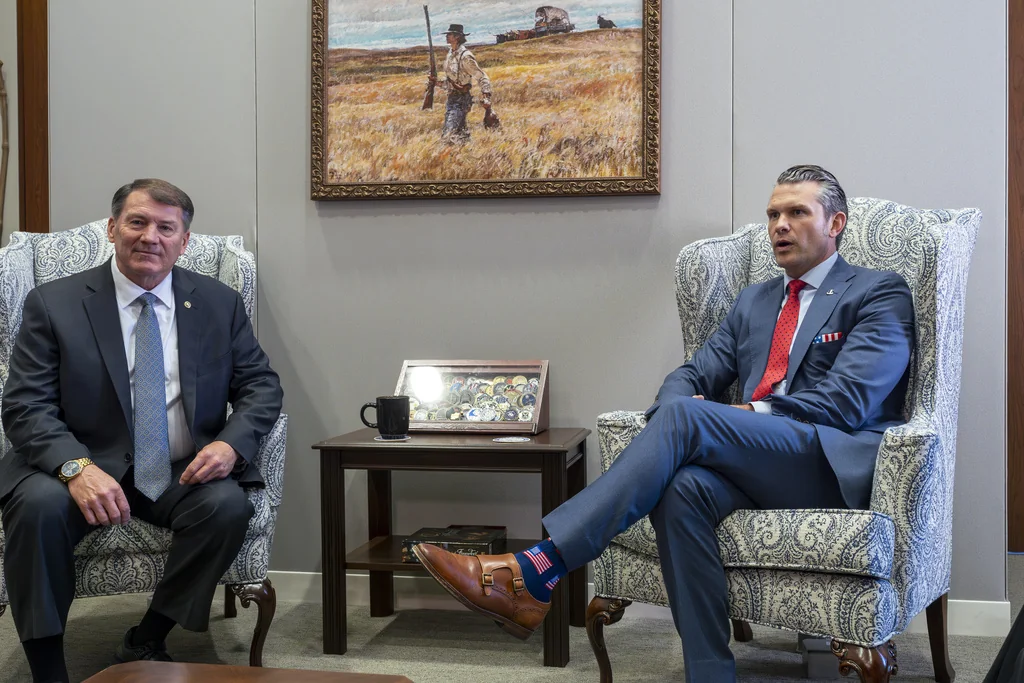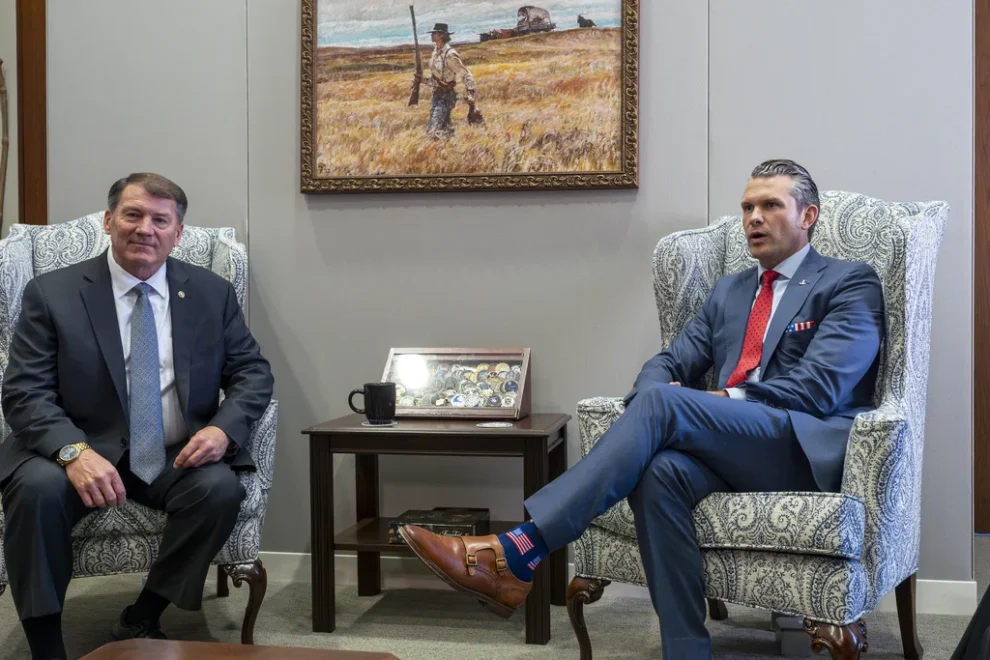Republican defense hawks are riding high after a series of events abroad prompted President Donald Trump to lean away from his more quasi-isolationist roots in his first term.
His bombing of Iran, increased aggression toward Russia, and resuming U.S. arms to Ukraine likely wasn’t the “America First” foreign policy agenda many Republicans were expecting. But it’s one that has pleasantly surprised those who advocate for aggressive defense policies, as the White House and its allies say Trump is embracing a “peace through strength” strategy.
“It is not an I-told-you-so moment,” Sen. Mike Rounds (R-SD), who sits on the Armed Services and Intelligence panels, told the Washington Examiner. “What we do see is some relief that what we had hoped the administration would come around to. They have succeeded in coming back to what we thought was the appropriate approach, both to Iranian aggression in that region, and a recognition that Putin is the problem.”
Even some who fall in the “America First” column and are more apprehensive toward certain foreign interventions, such as aid to Ukraine, see some upside and justification to Trump’s more hawkish steps to combat Russia’s Vladimir Putin.
“The only way you get peace by yourself is if you just capitulate,” Sen. Rick Scott (R-FL), a Foreign Relations Committee member who’s voted against arming Ukraine. “He’s had to deal with Putin, and he’s had to deal with the Ayatollah. He didn’t have a choice.”
Trump’s recent bombing of Iranian nuclear sites in a show of support for close ally Israel came to the delight of Iran hawks and the displeasure of those with more isolationist foreign policy views, such as libertarian Sen. Rand Paul (R-KY).
Trump has struck an increasingly hawkish tone toward Putin for repeatedly offering “bull****” niceties that turn “out to be meaningless.” The president has also warmed to applying new economic pressures against Moscow.
Trump indicated that more action against Putin is coming, teasing a “major statement” on Russia on Monday in an interview with NBC News. He also expressed support for a tougher Russia sanctions passage pushed by Sen. Lindsey Graham (R-S.C.) in the Senate.
“They’re going to pass a very major and very biting sanctions bill, but it’s up to the president as to whether or not he wants to exercise it,” Trump said in an interview with NBC News.
Sen. Josh Hawley (R-MO), another opponent to Ukraine aid, saw Trump as being forced into a “pretty intractable situation” on continuing U.S. support in a long-running bid to defeat Putin. Trump this week resumed sending weapons to Ukraine, reversing a freeze of some shipments by Defense Secretary Pete Hegseth that appeared to catch the president and White House officials off guard.

But defense hawks, Hawley surmised, are “feeling pretty good. I think there’s no denying that.” He quipped that folks like himself were feeling more “despondent” before laying out a more holistic analysis of the president’s handling of foreign affairs.
“I think you can’t get caught up in any one given event. You’ve got to look here at the overall trajectory,” Hawley said. “The Ukraine-Russian thing — it’s a big problem. It’s an intractable, in many ways, situation. I know he desperately wants to end it, wants to end the conflict, wants to end the war. But doing so — it’s tough.”
The Trump administration has tempered suggestions or outright criticism that he’s suddenly more prone to U.S. foreign conflict, emphasizing that his actions have been in the pursuit of his “peace through strength” mantra.
“No world leader has done more for global stability than President Trump, who in just six months has resolved conflicts between Israel and Iran, the Democratic Republic of the Congo and Rwanda, India and Pakistan, and more,” White House spokesperson Anna Kelly told the Washington Examiner. “Every action the president takes has put America First while bringing the world closer to peace.”
Secretary of State Marco Rubio, speaking to reporters in Malaysia at a foreign ministers’ summit on Southeast Asian nations, described what he sees as the balancing act between defeating Putin and Trump’s more dovish feelings toward war.
“The president doesn’t like wars. He thinks wars are a waste of money and a waste of lives,” Rubio said. “He wants them to end, and he’s going to do everything he can within his power to end this war and any other war he has a chance to end.”
In some cases, Republican defense hawks say Trump is not going far enough to bolster American military supremacy in the proposed 2026 budget. Those like Sen. Mitch McConnell (R-KY) and the GOP chairs for the House and Senate Armed Services panels say that, when accounting for spending and cuts elsewhere, the White House’s proposal results in real-term cuts despite boosting defense spending on paper by 13% to $1 trillion.
DEFENSE HAWKS TAKE AIM AT MILITARY FUNDING IN TRUMP’S BUDGET
With any political candidate, there’s an inevitable evolution from a campaign agenda to real-world governing. Or in Trump’s case, there’s the progression from a lifetime of high-value business and real estate deals to negotiating peace and war with other world leaders.
“In business, you’re always trying to find a middle ground, or one that lasts long term,” Rounds said. “It’s not always a one side wins and one side loses when you’re talking about foreign relations.”
Naomi Lim contributed to this report.
























